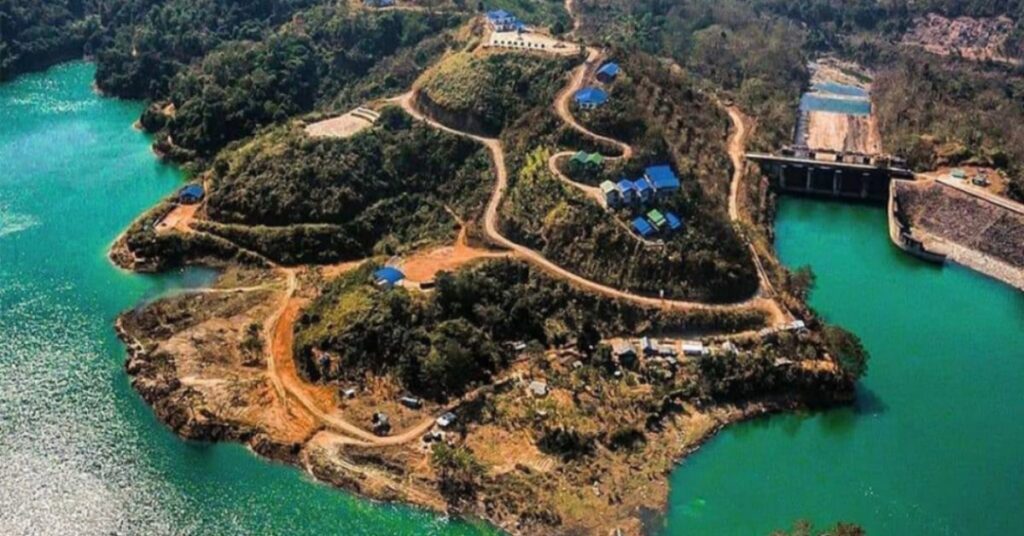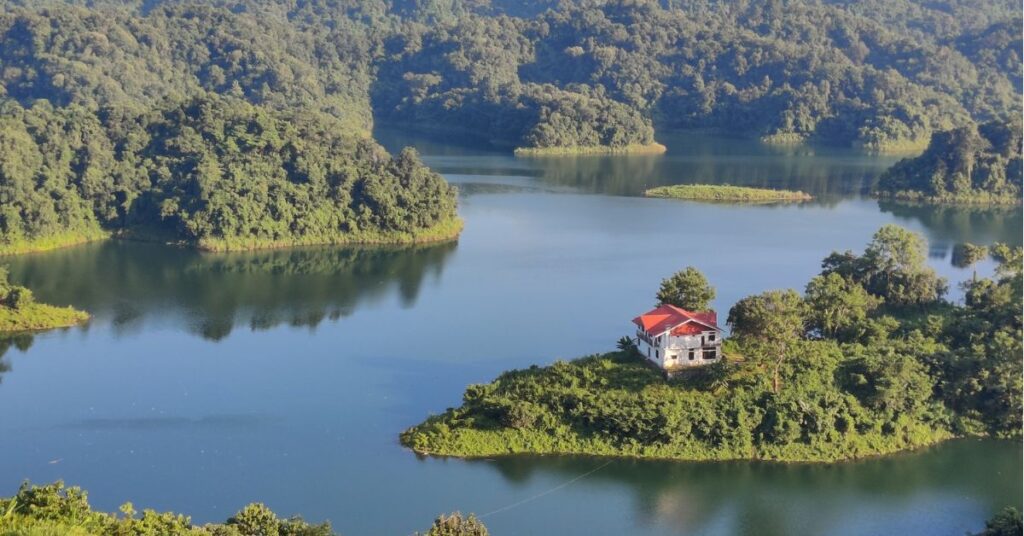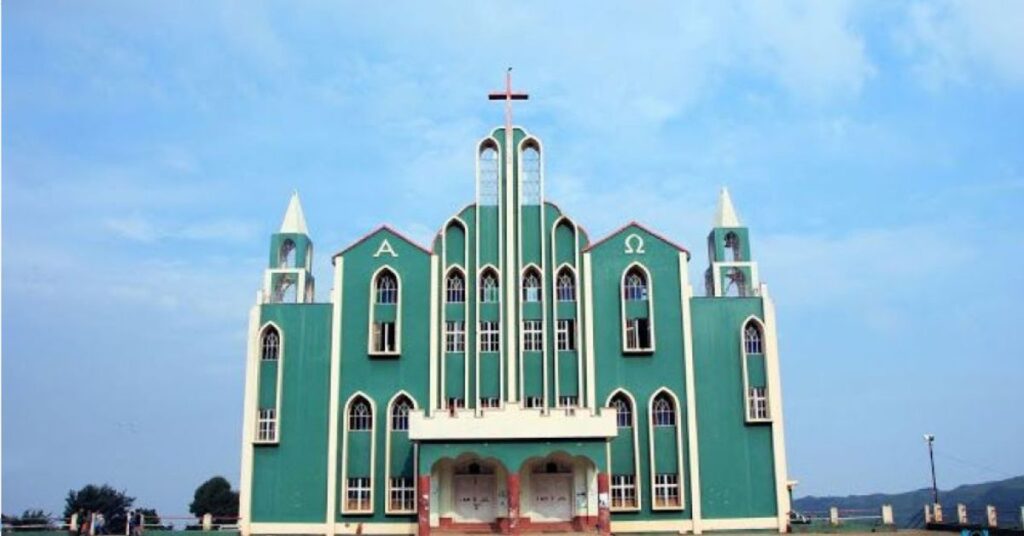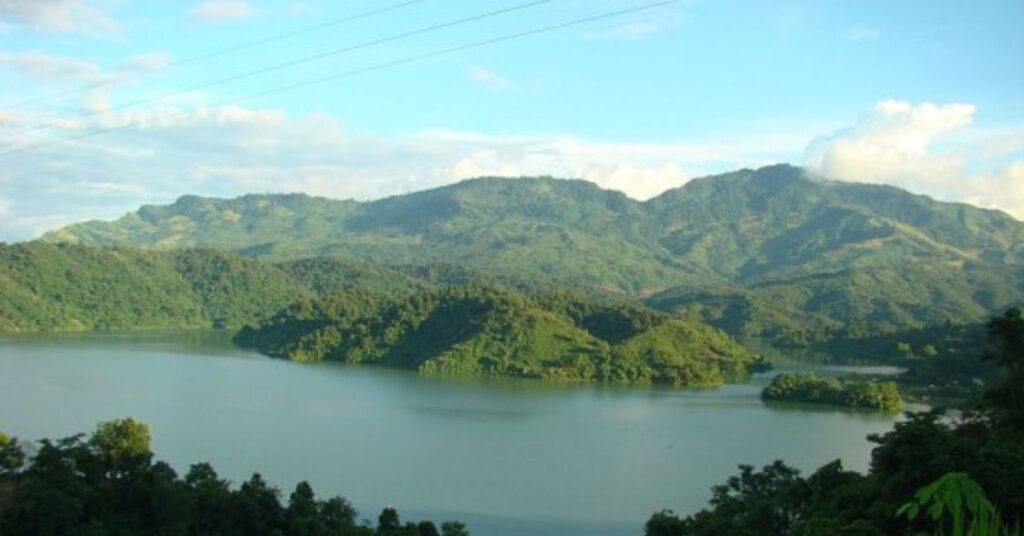Wokha is a beautiful town tucked away in Nagaland, India. Known for its green hills, friendly people, and rich culture, it’s a place you’ll love exploring. Unlike some other famous places in Nagaland, Wokha offers a peaceful escape where you can truly experience the beauty and traditions of the region.
Imagine rolling hills, lush valleys, and the calm Doyang River flowing through the area. Wokha is home to the Lotha people, whose colorful festivals and handmade crafts make the place even more special. Whether you enjoy nature, exploring different cultures, or seeking adventure, Wokha has something for everyone.
How to reach:
By Air:
The closest airport to Wokha is Dimapur Airport (DMU), about 150 kilometers away. The journey by road takes around 5-6 hours. You can hire a taxi or take a bus from the airport to Wokha. Taxis are faster and more comfortable, while buses are a budget-friendly option.
By Train:
The nearest railway station is Dimapur Railway Station. From there, you can take a taxi or bus to Wokha. The journey takes about 5-6 hours by road.
By Road:
- From Kohima: Wokha is around 85 kilometers away. You can reach there by taxi or bus in about 3-4 hours. The journey offers scenic views of the hills.
- From Dimapur: Wokha is about 150 kilometers away. Regular buses and taxis are available. The journey takes around 5-6 hours.
- Buses: Nagaland State Transport (NST) operates regular bus services between major towns and Wokha. These buses are affordable but the journey can be longer due to frequent stops.
BEst time to visit:
Winter (October to February)
Enjoy the coolest weather in Wokha from October to February, with temperatures ranging from 5°C to 20°C. Clear skies and pleasant conditions make this the perfect time to explore the beautiful countryside, go trekking, and experience the local culture.
Spring (March to April)
Spring brings mild temperatures (10°C to 25°C) and blooming flowers to Wokha. It’s a lovely time for nature walks, photography, and simply enjoying the town’s charm.
Summer (May to June)
While still pleasant with temperatures between 15°C and 30°C, summer in Wokha can be slightly warmer and humid. It’s still a good time to visit, but be prepared for hotter days.
Monsoon (July to September)
Wokha receives heavy rainfall during the monsoon season (July to September) with temperatures ranging from 18°C to 25°C. The wet conditions can make travel difficult and outdoor activities challenging. It’s best to avoid visiting during this time.
Attractions:
Doyang River:

The Doyang River is a beautiful, calm river that winds through the green hills of Wokha. It’s a perfect place to relax and enjoy the scenery. You can take a boat ride on the peaceful water and see the amazing sights around you. If you like fishing, the river is full of different kinds of fish. It’s also a special place for birds, especially during the winter when lots of special birds come to visit. The Doyang River is a wonderful place for nature lovers to enjoy the peace and quiet.
Doyang Lake (Doyang Reservoir):

Doyang Lake is a big, peaceful lake surrounded by green trees. It’s a perfect place to escape the busy city. You can take a boat ride on the calm water and enjoy the beautiful scenery. The lake is famous for being home to thousands of special birds called Amur Falcons. Every year, these amazing birds come to visit, and it’s a wonderful sight to see. You can also have a picnic or go for a walk around the lake. It’s a great place to relax and enjoy nature.
Vankhosung:

Vankhosung is a special place with a rich history. It’s where the first American people came to teach about Christianity in this area, a big moment for Nagaland. You can still see some old buildings from that time and learn about how it changed people’s lives. Vankhosung is also important for the Lotha people. You can learn about their way of life and traditions there. It’s a peaceful place where you can think about the past and learn about the people who lived here before.
Totsu Cliff:

Totsu Cliff is amazing! It’s a tall, beautiful rock with the most amazing views. You can see for miles and miles, with green hills and valleys as far as the eye can see. It’s a perfect place to walk around and take pictures. You’ll see lots of different plants and animals too. It’s so peaceful and quiet, a great place to just relax and enjoy nature.
Local Experiences:
- Village Life: Experience the traditional Lotha way of life by visiting a local village. Learn about their customs, traditions, and architecture.
- Festive Spirit: Join the locals in celebrating the Tokhu Emong harvest festival or witness the amazing sight of Amur Falcon migration during their dedicated festival.
- Mountain Climbing: Challenge yourself with a trek to the sacred Mount Tiyi, offering breathtaking views and a chance to learn local legends.
- Birdwatching Paradise: Spot the magnificent Amur Falcons and other bird species at Doyang Lake, a haven for nature enthusiasts.
- Outdoor Escapes: Enjoy camping, fishing, and picnics at Liphanyan Governor’s Camp. Explore the calm waters of Doyang River by boat or discover hidden waterfalls in Vankhosung and Tsungiki.
- Missionary Trails: Learn about the early days of Christianity in Nagaland by visiting Vankhosung, the site of the first American Baptist Mission.
- Conservation Efforts: Discover the importance of protecting the Amur Falcons and their habitat through a visit to Pangti Village.
- Hands-on Learning: Participate in workshops to learn traditional Lotha crafts like weaving and basket making.
- Culinary Journey: Savor the authentic flavors of Wokha by trying local dishes and delicacies.
Travel tips:
- Permits: Obtain an Inner Line Permit (ILP) if you’re a foreign visitor.
- Accommodation: Book your stay in advance, especially during peak season (October to April).
- Weather Check: Check the weather forecast and road conditions before your trip, especially during the monsoon (July to September).
- Clothing: Pack warm clothes for winter (October to February) and light, comfortable clothes for the rest of the year.
- Footwear: Bring sturdy shoes for hiking and exploring the hilly terrain.
- Medical Kit: Carry essential medications, including those for motion sickness.
- Vaccinations: Ensure you’re up-to-date on recommended vaccinations for Nagaland.
- Local Transport: Use taxis or auto-rickshaws for short distances within Wokha.
- Self-Drive: If renting a car, be cautious on hilly roads and carry a good map or GPS.
- Road Safety: Drive during daylight hours and be aware of road conditions.
- Local Customs: Dress modestly and respect local traditions and customs, especially in villages.
- Photography: Ask for permission before taking photos of people or religious sites.
- Connectivity: Check your mobile network coverage and consider offline maps.
- Cash: Carry enough cash as ATMs might be limited in some areas.
- Food: Try local cuisine but prioritize hygiene when choosing where to eat.
Conclusion
Uncover the allure of Wokha, Nagaland, a destination celebrated for its pristine landscapes, rich cultural heritage, and warm hospitality. Explore breathtaking vistas from Mount Tiyi, unwind amidst the serene Doyang Lake, and immerse yourself in the vibrant Lotha culture through festivals and village life. Xplro.com offers comprehensive travel guides to plan your adventure seamlessly. Let Wokha’s natural beauty, cultural depth, and friendly people create unforgettable memories.
FAQs
1. When is the ideal time to visit Wokha?
- The ideal time to explore Wokha is between October and April. During these months, the weather is generally pleasant, making it perfect for sightseeing and outdoor activities. The cooler temperatures and clear skies during winter and spring enhance the overall experience.
2. Is a permit required to visit Wokha?
- Yes, an Inner Line Permit (ILP) is required for foreign tourists and Indian tourists from outside Nagaland. This permit can be obtained online or from designated offices in Nagaland and major Indian cities.
3. How can I travel to Wokha?
- Wokha can be reached via air, train, or road. The nearest major airport and railway station are in Dimapur, about 150 kilometers away. From Dimapur, you can take a taxi or a bus to reach Wokha. Additionally, Wokha is accessible by road from Kohima, which is roughly 85 kilometers away.
4. What are the key attractions in Wokha?
- Key attractions in Wokha include Mount Tiyi, Doyang River, Doyang Lake, Liphanyan Governor’s Camp, Vankhosung, Totsu Cliff, the Lotha Village, and local waterfalls such as Vankhosung and Tsungiki.
5. What is the Tokhu Emong Festival?
- Tokhu Emong is a major harvest festival celebrated by the Lotha tribe in November. This festival marks the end of the harvest season and features traditional dances, music, feasting, and various cultural events, showcasing the Lotha tribe’s vibrant traditions.
6. Is Wokha a safe destination for tourists?
- Generally, Wokha is considered safe for tourists. However, it is wise to follow standard safety measures, such as traveling during the day, being respectful of local customs, and staying updated on any travel advisories.
7. What types of accommodation are available in Wokha?
- Wokha offers various accommodation options including guesthouses, lodges, and homestays. It’s advisable to make reservations in advance, particularly during peak tourist periods.
8. What local dishes should I try in Wokha?
- Try local specialties such as smoked pork, bamboo shoot dishes, axone (fermented soybean), and anishi (fermented yam leaves). These dishes are integral to the Lotha tribe’s culinary traditions.
9. Are there local guides available in Wokha?
- Yes, local guides are available in Wokha. Hiring a guide can enhance your visit by offering deeper insights into the cultural and historical aspects of the area and helping with navigation.
10. What outdoor activities can I enjoy in Wokha?
- In Wokha, you can engage in activities such as trekking, bird watching, boating, fishing, camping, and nature walks. The region’s diverse landscapes provide ample opportunities for outdoor adventures.
11. Can I observe the Amur Falcon migration in Wokha?
- Yes, Wokha, particularly around Doyang Lake, is a prime location for viewing the migration of Amur Falcons. These birds stop over in the area during their long journey from Siberia to Africa, making it a great spot for bird enthusiasts.
12. What local customs and etiquette should I follow in Wokha?
- Respect local customs by dressing modestly, especially when visiting villages or attending festivals. Always seek permission before photographing people or entering religious sites. Being courteous and considerate of local traditions will ensure a positive experience during your visit.






